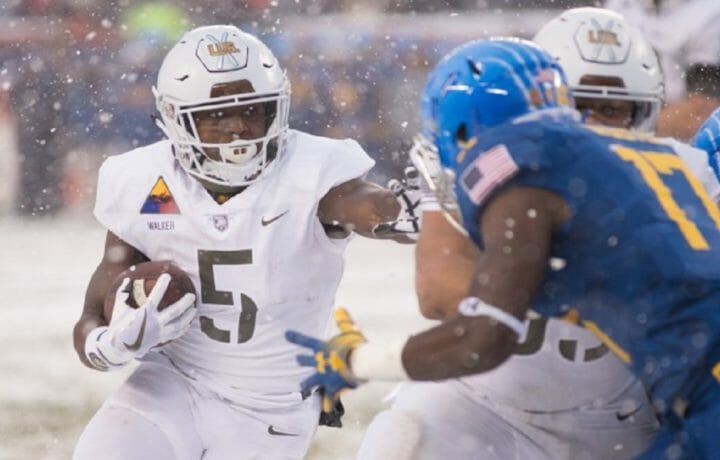Today’s Supreme Court ruling paves the way for amateur athletes to be compensated for their college sports pursuits, including product endorsements and other compensation that was before off limits. The 9-0 ruling affirmed a lower court decision that prevented the NCAA from restricting payments made to its athletes. The decision comes as July is set to usher in five states who have established laws which would allow college athletes to be compensated.
States and college athlete programs will have to come to terms with the reality of what it looks like for student athletes to be paid influencers, but it’s certainly a problem universities should be prepared for – and one they’ve in many ways created through their own leveraging of non-athlete influencers and competitive marketing campaigns to attract students to campus – particularly post pandemic.
Military Athletics
The military athletics program has experienced a few strange references in regards to the college athlete compensation conversation – one of the topics being the fact that military college athletes are compensated – to the tune of a whopping $100-300ish per month. That may have made them ‘higher’ paid athletes than many others (at least according to several sports bloggers), but you’d be hard pressed to consider the pay anything resembling compensation.
The student athletes at West Point or Annapolis are absolutely pursuing something beyond compensation. Even in the post-Afghanistan era, you’re not picking West Point over UCLA because of the stipend. That said, the open door to compensation for student athletes will only increase the seismic gap between the pursuit of a military athletics program and a traditional university athlete track.
Navy athlete Cameron Kinley recently drew headlines after his request to delay his commission to play in the NFL was denied. Other military athletes who have had the opportunity to play in the NFL have been granted deferments. Each deferment is granted on a case-by-case basis, and the Navy has spoken out that each exception is ‘rare.’ But there’s no doubt being denied the chance to play in the NFL will have trickle down implications on other student athletes, who may see serving in a military academy as closing the door on a future professional career. In interviews Kinley has described his decision to join the Naval Academy – like most other athletes note, it was the twofold attraction of being able to serve and play.
“It ultimately came down to the Naval Academy being the total package, and having the opportunity to give back and serve my country and grow as a man and grow as a leader, which was going to make me a better husband and a father in the future,” said Kinley during a recent interview on Good Morning America. “So it was an opportunity I couldn’t see myself passing up on.”
Today’s Supreme Court decision is unlikely to change the overall flavor of the military athletics program (you can’t buy that brand of patriotism). But Kinley’s denial could. Military athletes show up to work – and play. And when they feel their shot at professional sports being denied due to a military service request, that may make future athletes think twice.
Service Members and Side Hustles
It’s worth noting that service members – including military athletes – are already prohibited from providing product endorsements. U.S. military regulations prohibit service members from endorsing a product in conjunction with their military service. A Twitter campaign tied to a military student athlete would certainly fall under that umbrella. Similarly, even side hustles like a mid-level marketing program are likely to be prohibited or at least frowned upon at the student level. No one wants their company commander trying to sell them Isagenix after PT (unless it gets them out of PT).
The civil-military divide seems to be a source of ongoing debate, even in the arena of student and service academy athletics. Bridging the gap has been a frequent topic – and not one an athletic programs can solve. The new arena of paid student athletes was likely inevitable. But it certainly doesn’t make the West Point recruiting program’s job easier.




